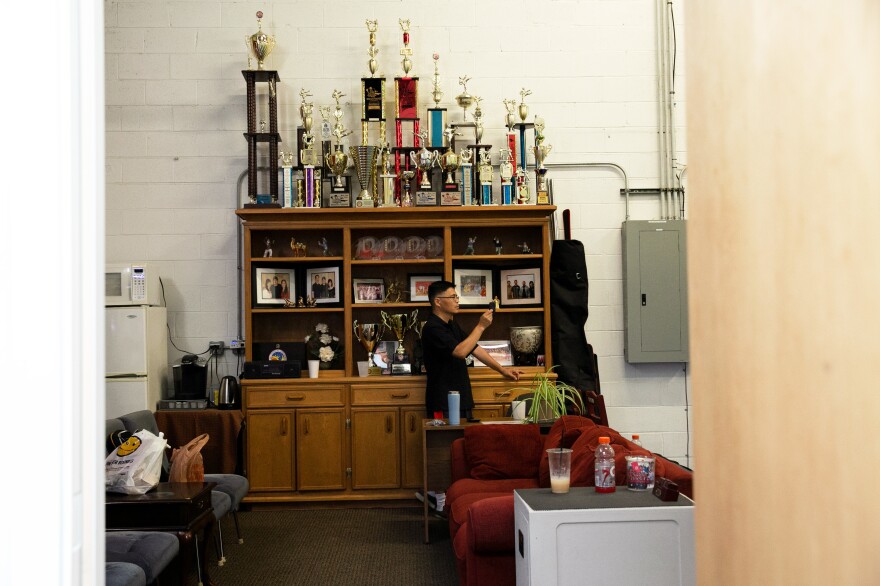On a hot July day in Fairfax, Va., husband and wife coaching team Christopher Pei and Zhang Guifeng, patted their students on the back while observing their emotions before their third performance at the 2019 Pan American Kungfu & Taijiquan Championships and U.S.A. Wushu Kungfu Federation National Team Trials.
"They are so nervous because they are experiencing competition anxiety from other students," says Pei, co-founder of U.S. Wushu Academy. "The anxiety allows me only an hour of sleep every night during the competition."
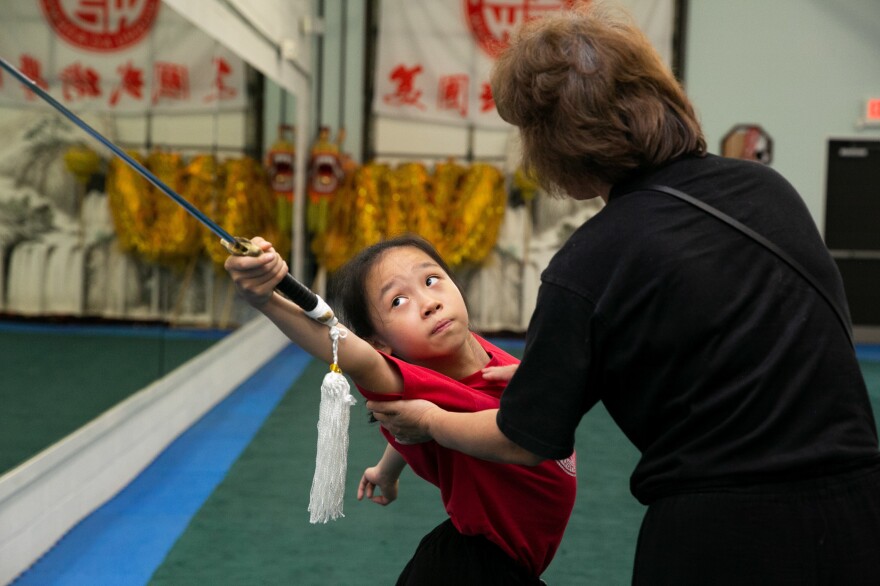
Wushu (武术) is a sport that blends elements of performance and martial arts. The USAWKF National Team Trials happen every two years and in the interim coaches and students get up at 7 a.m. each day to practice. For 30 years Pei and Zhang have dedicated themselves to Wushu education.
As a photographer and native of Foshan, China, a southern city that has an important position in the country's Wushu history, I spent two months photographing this couple's dedication to Wushu education in the United States. It was a way to connect with my roots and also explore why these traditions have been fading away in Foshan.
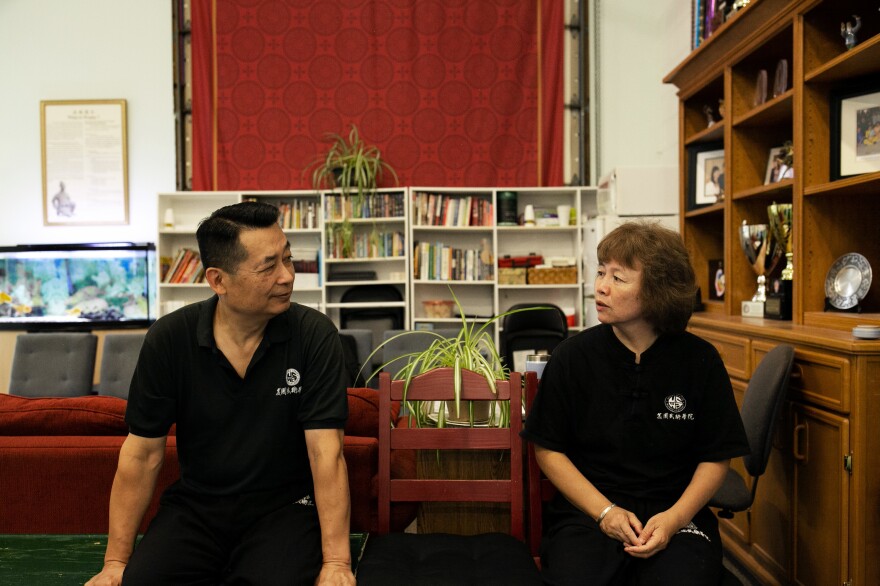
Training and learning
Pei, who is in his 60s, migrated to the United States from Taiwan with his family in 1972.
"When we moved to Vestal, New York, I did not know any English and started learning English from alphabets," Pei says. "So I figured it might be a better idea to start learning Wushu in case I get into a fight and can defend myself."
He later realized Wushu is composed of two Chinese characters, "zhǐ"(止) and "gē" (戈), which means to stop fighting.
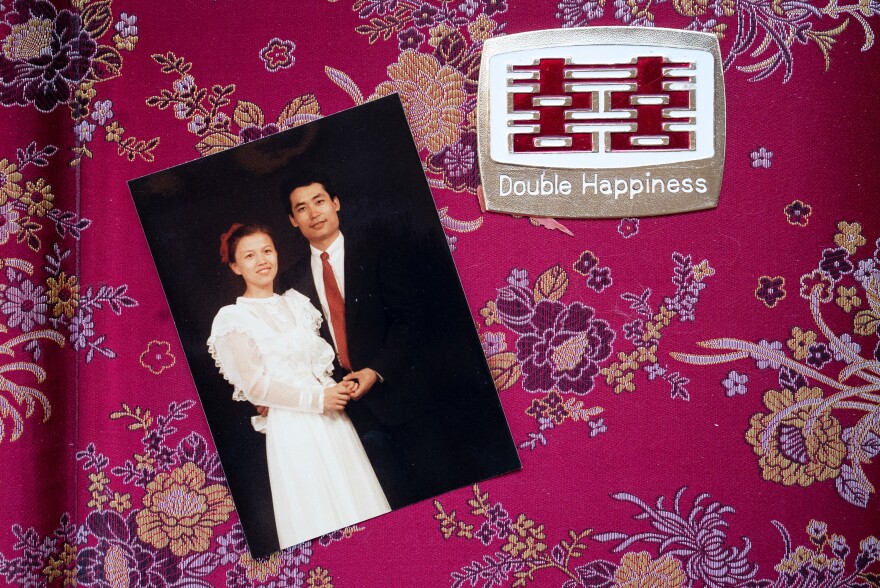
In 1980, Pei traveled back to Beijing for further training in Wushu. That's where he met Zhang Guifeng, who served as one of the leading coaches at Beijing Shichahai Sports Academy, one of the main centers for training young sports talents in the city. The couple married in 1984. In the next four years, while working as a security officer, Pei practiced Wushu after work in a community center, while Zhang coached him from the sidelines.
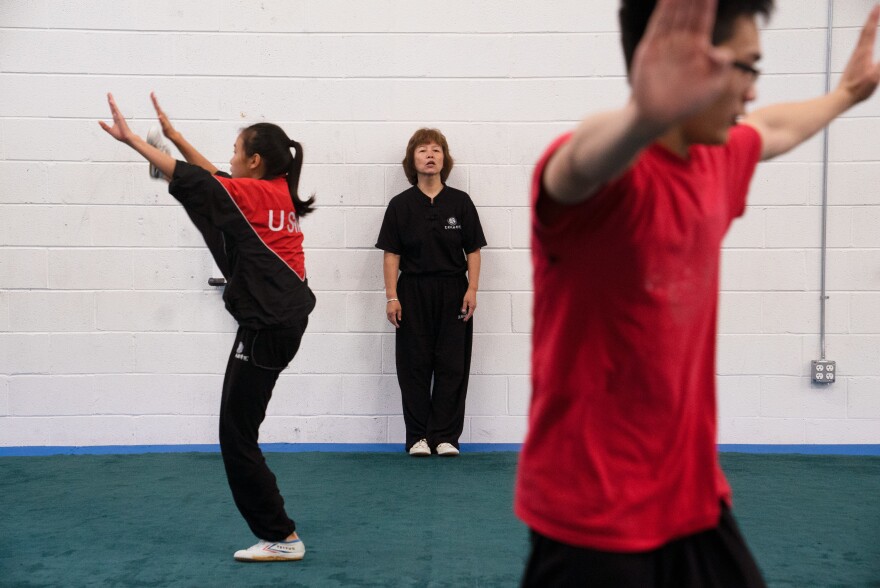
They didn't plan on establishing a Wushu academy until Pei attended the U.S. National Team Trials in 1985 with Zhang.
"I was surprised to learn the performance people gave didn't line up with the national standards and the students were not taught by professional coaches," Zhang says.
Mastering literacy
They opened their first academy in Virginia in 1988. Over the next 30 years student enrollment got so big they had to move three times to accommodate the growth.They ended up running two academies in Virginia and Maryland. They established an overarching goal for the academy which Pei describes as, "helping students to become a better person" rather than winning the world championship.
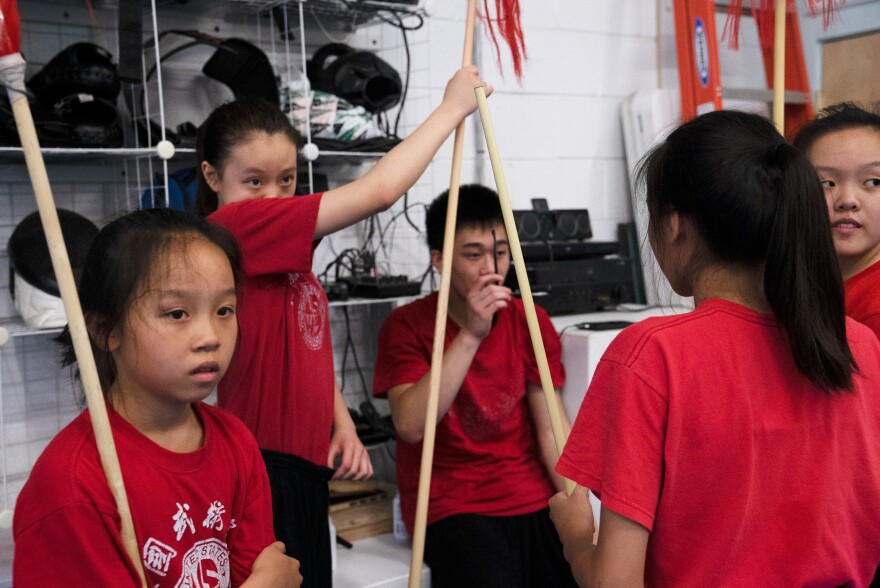
Students start as kindergarteners and many continue all the way to college. Chinese culture emphasizes "Wén Wŭ Shūang Qúan"(文武双全), which means mastering both literacy and martial arts in order to become a complete person. Pei dismisses the claim that Wushu promotes superstition and violent anarchy, taking every opportunity to address this misleading stereotype.

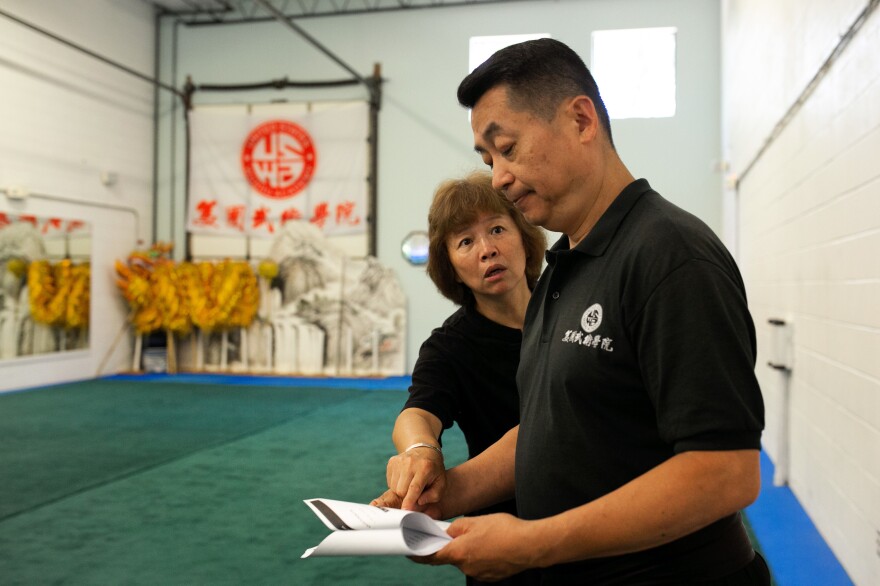
Zhang bemoans the fact that most children can't focus on building solid Wushu skills because their parents send them to so many different extracurricular activities. She regrets this as she believes Wushu helps youth develop concentration because its two main principles include focus and respect. Many parents who grew up in the U.S. as second- or third-generation Chinese need their children to not only learn Chinese traditional culture but also the correct way to become a better person, Pei says.
"We have them repeat the same thing so they can improve," Zhang says. "Consistency is very important."
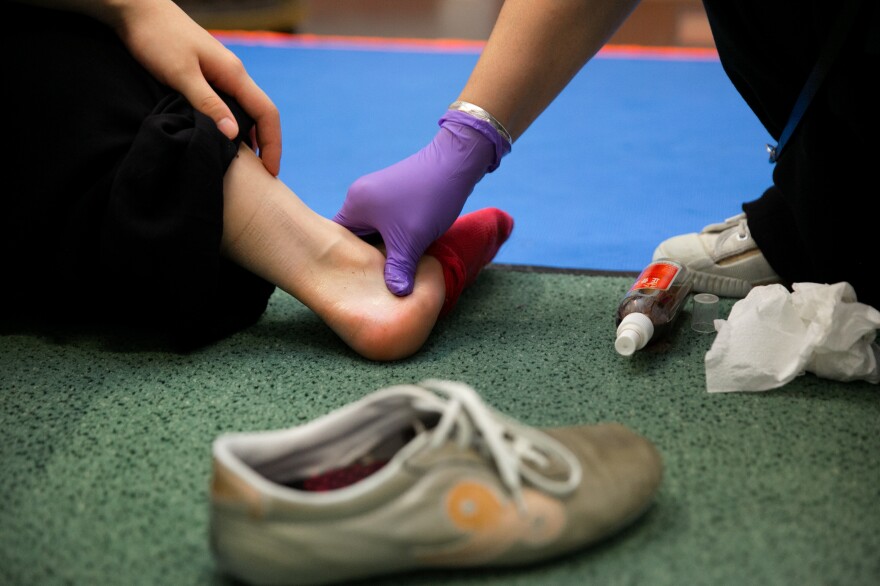
Pei and Zhang have different personalities. Pei speaks with a gentle voice but loves laughing while making jokes with almost everyone. Zhang is loud and strict with students, but people will often catch her calling her students Bǎo Bèi Er, or my baby, while her students call her Mā, or mom. Before the trials, training grows more intense and so do injuries, and Zhang often makes Chinese herbal medications for her students' sprained ankles.
"The students don't easily give up."
The couple describes Wushu as a "modern sport."
"We are lucky because the parents really understand what we are trying to do because they were born and raised in China and they understand the roots of Chinese culture," Pei says.
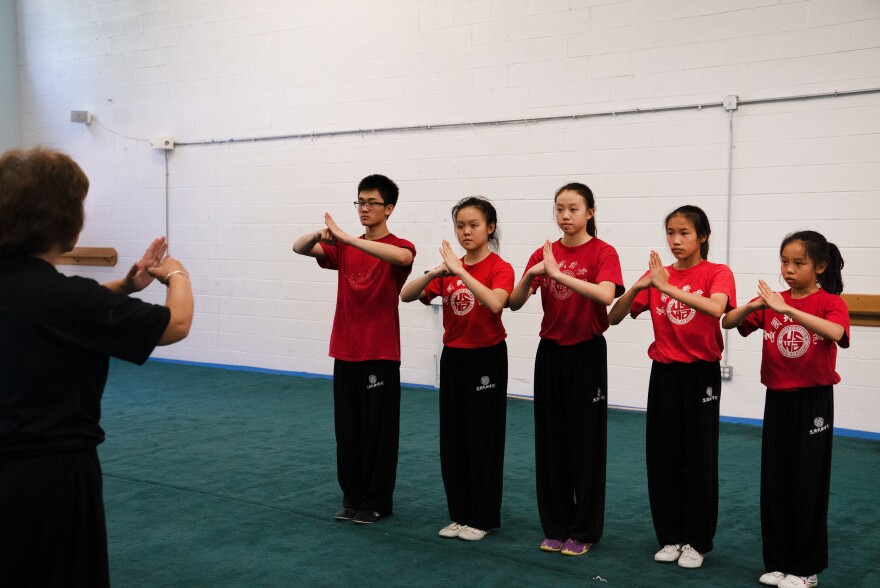
They devote six days of the week to Wushu education. Sunday is the only day their attention is not on their students. To learn more about traditional Chinese culture, Pei reads books on Confucious and Chinese medications. Zhang escapes by filling their backyard with 20 different types of plants and flowers.
"We respect each other in school and at home," Pei said. "In school, I follow Coach Zhang's lead and do what she says." They say their key to a long-lasting marriage is respecting each other's interests.
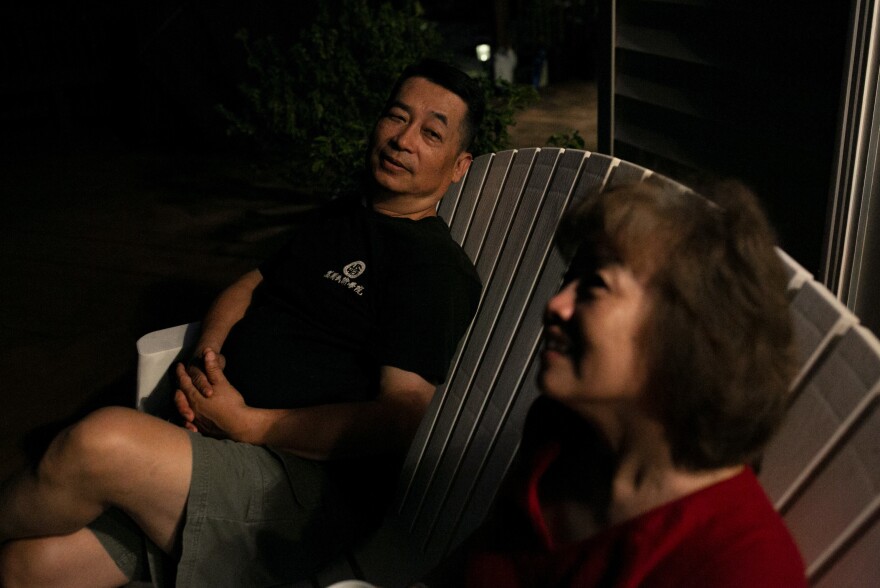
"But we also value our family time," Zhang said. "Each year, we spend some time traveling together." These days when they return to Virginia after the team trials, Pei makes lunch each day for Zhang.
This year, all their coaching hard work paid off. Four of their five students made the USAWKFS National Team in July.
"Learning Wushu takes a huge amount of perseverance and hardship," Pei said. "The students don't easily give up."
Copyright 2023 NPR. To see more, visit https://www.npr.org.
